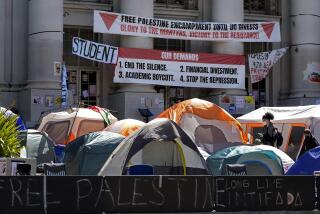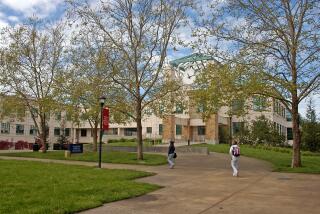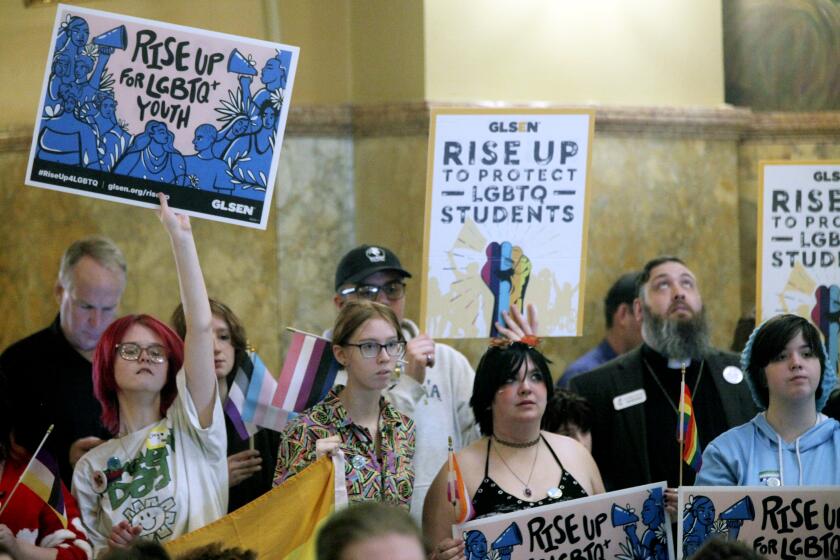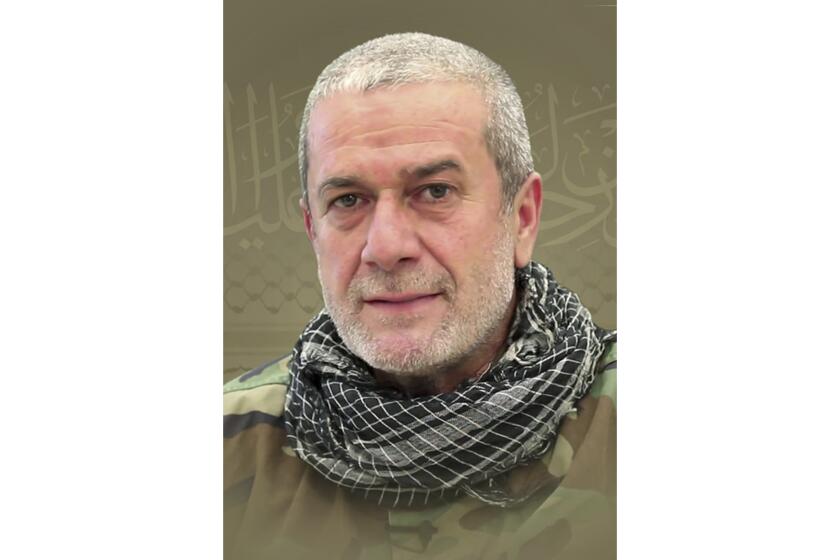Retiring UC Berkeley chancellor sounds off on protests, enrollment, housing
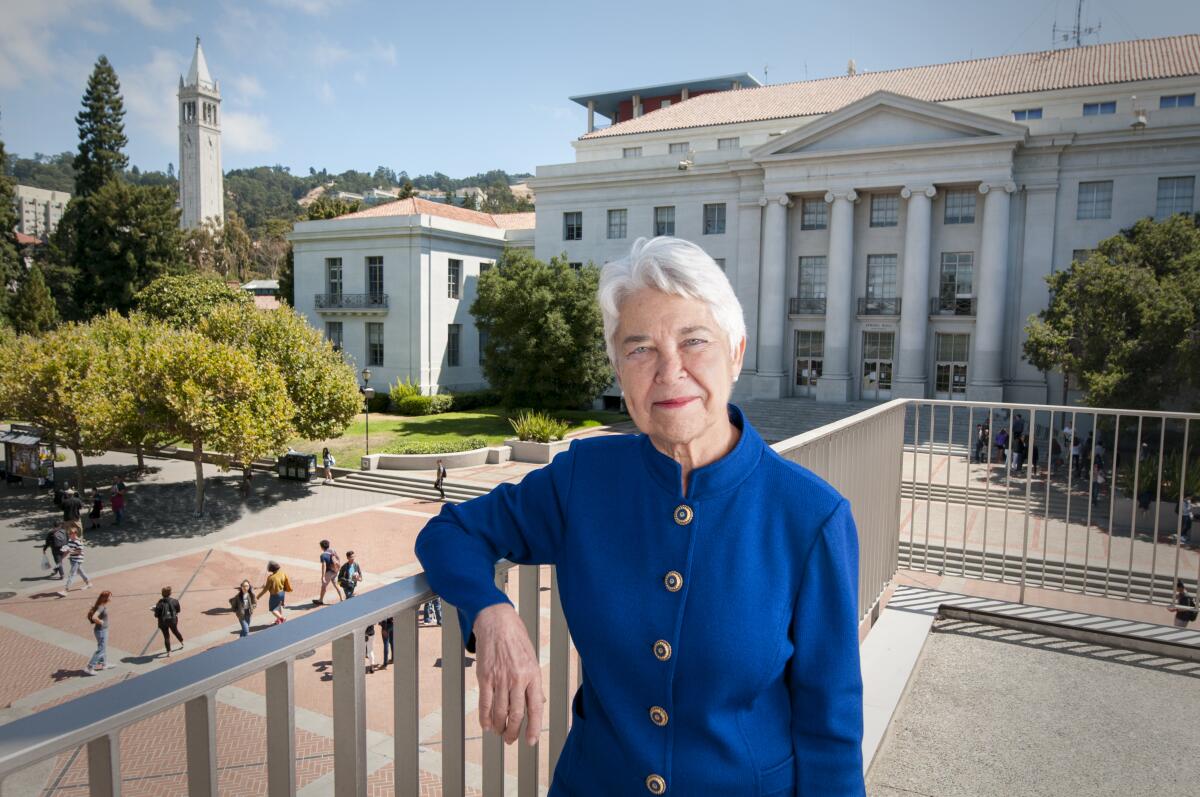
UC Berkeley Chancellor Carol Christ took the helm seven years ago, amid roiling discontent over free speech conflicts, financial woes, sexual assault scandals and a leadership crisis under her predecessor.
During her tenure, the crises never seemed to let up. The pandemic hit. Another budget shortfall opened. Opposition exploded over her housing plan at People’s Park. Ever-increasing enrollment strained the campus. Pro-Palestinian protests tore the community apart.
But there were also high points. A record-shattering $7.4-billion fundraising campaign. Visionary academic ventures, including the first new college in more than 50 years, dedicated to computing and data science. A surge of research and a Nobel Prize to a Berkeley professor for advances in gene-editing methods.
Christ is stepping down Friday, more than 50 years after first arriving at Berkeley as an assistant professor in the English Department and serving in varied leadership roles before taking the top job. In a recent interview, Christ shared candid, even self-described “heretical” thoughts about the highs and lows of her term and the hot-button issues she has confronted.
“It was the best of times, it was the worst of times,” said Christ, 80, a specialist in Victorian literature quoting Charles Dickens. “There is a very difficult political crisis right now, but at the same time there are extraordinary things going on in the university that are changing all of our lives.”
Protests: Call for negotiations not police
She departs at the most agonizing chapter of her tenure on campus.
“This conflict over Israel and Palestine is just ripping the community apart,” Christ said. “It’s student against student, faculty member against faculty member. It creates the highest level of anxiety, fear and protest that I’ve certainly seen in my lifetime.”
Christ disclosed that she resisted pressure from University of California regents and others to take down a pro-Palestinian encampment — using police forces if necessary — on historic Sproul Plaza where Berkeley’s famed free speech movement was born in 1964.
Students put up tents in April to protest Israel’s military bombardment in Gaza following the Oct. 7 Hamas attack. They voluntarily took down the camp on May 14 after Christ expressed support for a review of whether university investments align with UC Berkeley values upholding human rights, equality and abhorrence of war. Christ also said the university would review all complaints about global exchange and internship programs to ensure they did not discriminate against Palestinians and others.
“I’ve got a long history at Berkeley,” Christ said. “In my experience, protests don’t end with police action. They end with negotiations. Every time there’s been police intervention in a protest, it’s tended to escalate the protest.”
Her approach was strongly endorsed by Berkeley’s Academic Senate, which issued a statement supporting Christ’s use of dialogue to peacefully end the encampment. In contrast, chancellors at UCLA and UC San Diego faced faculty votes to censure and express no confidence after their decisions to bring in police to remove the encampments, although the motions failed at both campuses.
Berkeley’s agreement with protesters, however, set off anger and dismay among some Jewish faculty and community members. In a letter this week, Christ reaffirmed her opposition to actions that explicitly target Israel and announced a significant expansion of antisemitism education for all incoming students, a new Israel Studies minor and more support for the Center for Jewish Studies.
Enrollment: Relentless demand spurs outlier ideas
Christ has a provocative idea to meet relentless demands for more access to coveted seats at the University of California: Bring some California State University campuses into the UC system.
She also thinks community colleges should be given full authority to offer bachelor’s degrees, noting that one study found California ranked 49th among states in the number of four-year institutions relative to its population.
Given higher education turf battles, Christ said “people will be furious at me” for voicing such ideas. But she said the state’s blueprint for higher education is broken in its design to apportion the top 12.5% of high school graduates to UC and the top one-third to CSU. Community colleges are open to all; although some provide limited bachelor’s degree programs, most offer two-year degrees and certificates.
“I think you really need to expand the number of coveted places in four-year institutions,” she said. “People are so frustrated by the very low admission chances that they have at the competitive UCs.”
She added that she does not support fully online undergraduate degree programs for her campus because students grow and thrive from academic study and in-person relationships and extracurricular activities. But more online courses, along with satellite campuses and faster completion of degrees, could help open more UC seats, she said.
Christ also said UC campuses, each with their own character and culture, should have more independence from systemwide oversight — to set their own nonresident tuition rates, for instance, or create new graduate degree programs without the “rigmarole” of central control.
Housing: a ‘human right’
Christ is proud of her relentless efforts to build housing at Berkeley’s iconic People’s Park, ultimately prevailing over years of lawsuits and protests. She said the park had become a public safety hazard and shelter is a human right. Six years after she took up the controversial issue that previous chancellors had long avoided, the state Supreme Court this month gave the green light to start construction of housing for 1,113 students and a separate building with permanent supportive housing for 125 low-income community members.
“I am both relieved and thrilled that we can now take an extremely significant step to address both our student housing crisis and the needs of unhoused people in Berkeley,” Christ said. “This is a wonderful win-win for the campus and city.”
Berkeley has developed seven housing projects under Christ — two completed, two set to open this fall and three others on the runway, including People’s Park. The projects will provide more than 6,200 additional beds and help Berkeley — which currently has the most acute housing shortage among UC’s 10 campuses — reach its goal of a two-year housing guarantee for first-year students and one year for transfer and graduate students. Berkeley will open about 1,535 new beds this fall.
Mary Ann Smart, a former Academic Senate chair and music professor, said Christ’s handling of People’s Park highlighted the chancellor’s unwavering sense of purpose, strong will behind a gracious manner and her ability to work collaboratively with others, including the Berkeley mayor and City Council members who have at times been at odds with the campus in the past.
Christ’s “moral compass” and respect for shared decision making with faculty — a bedrock UC value that many fear is eroding — are also widely admired, said Maximilian Auffhammer, an environmental economist and Academic Senate chair.
McKalee Steen, president of the Berkeley Graduate Assembly and doctoral candidate in environmental science, policy and management, said Christ’s willingness to listen and engage with students stood out, notably in her handling of the pro-Palestinian encampment. Although Steen disagreed with the decisions around People’s Park, especially deploying hundreds of police officers to clear out protesters, she gave Christ high marks.
“Being a chancellor at any university, especially Berkeley, is an impossible job,” she said.
Money: State bailout “unrealistic”
On other issues, Christ said a return to full state funding for public higher education is “unrealistic” without changes in taxation policies to secure more revenue. Private fundraising, entrepreneurial projects, new degree programs and other ways to raise money are now essential, she said.
Berkeley’s $7.4 billion capital campaign — launched in 2020 just as the pandemic hit — was the largest haul ever for a public university. Christ said the most exciting gifts funded an amenities-rich residence building for transfer students opening this fall, along with faculty positions, scholarships and research programs.
But James Vernon, co-chair of the Berkeley Faculty Assn., critiqued Christ’s approach, saying campus buildings are crumbling, faculty and staff workloads are increasing and the quality of education is at risk due to lack of state funding and ever-increasing enrollment.
“The model Christ has to save the university by making it grow is unsustainable for everyone — faculty, students and the surrounding city,” he said.
Christ said she wished she had made more progress supporting Native American and Black students, building campus housing more quickly and rebuilding the fractured community after the pandemic.
She worries about the “huge gap” among incoming students in their college preparation, reflecting differences in pandemic-related learning setbacks, and the greater difficulty in assessing math skills after UC dropped standardized tests as an admissions requirement in 2020 — a decision she still supports. Berkeley will need to provide additional assessment tools, catch-up classes and maybe even calculus courses taught jointly with high school teachers, she said.
But as Christ heads into her post-chancellor life, with plans to read, write, travel and play her beloved viola and piano, she is ready for a new captain to steer Berkeley’s course. Rich Lyons, UC Berkeley business school dean and leader of innovation and entrepreneurship, will succeed her.
“We’ve made a lot of progress,” she said, “but there’s still a big distance to go.”
More to Read
Start your day right
Sign up for Essential California for news, features and recommendations from the L.A. Times and beyond in your inbox six days a week.
You may occasionally receive promotional content from the Los Angeles Times.
